Talks on removal of anti-Iran sanctions kick off in Qatari capital
A fresh round of negotiations over the removal of anti-Iran sanctions has started in the Qatari capital of Doha, in a high-stakes diplomatic process aimed at breaking the stalemate in the revival of the 2015 Iran deal.
Iran’s official IRNA news agency reported on Tuesday that Iran’s chief negotiator Bagheri Kani, who also serves as Iran’s deputy foreign minister, had met with European Union deputy foreign policy chief Enrique Mora in Doha.
Earlier in the day, the agency announced that Iran’s top negotiator to the sanctions removal talks had arrived in the Qatari capital.
Media reports said Robert Malley, the US special envoy for Iran, had also landed in Qatar for the resumption of indirect discussions with Tehran about ways to revive the Iran deal, formally known as the Joint Comprehensive Plan of Action (JCPOA).
The EU is tasked with coordinating indirect negotiations between Iran and the United States during the process. Iran does not sit down with the US as it is no longer a party to the deal.
The talks in Doha follow several rounds of negotiations in the Austrian capital of Vienna since April last year to restore the landmark deal, which was unilaterally abandoned by former US President Donald Trump in May 2018.
In quitting the agreement, Trump restored sanctions on Iran as part of what he called the “maximum pressure” campaign against the country. Those sanctions are being enforced to this day by the Joe Biden administration, even though it has repeatedly acknowledged that the policy has been a mistake and a failure.
Iran has maintained it wants assurances that it will enjoy the economic benefits that were promised under the original deal.
Negotiations reached an impasse and were suspended in March over Washington’s refusal to remove post-JCPOA sanctions and take Iran’s Islamic Revolution Guards Corps (IRGC) off a list of “foreign terrorist organizations.”
The Trump administration made the listing in 2019-- the first and only time the United States has designated part of another country’s armed forces-- in a move that analysts say was intended to make it harder for any future administration to reenter the deal.
Iran has also demanded that the US provide guarantees a future administration would not withdraw from a restored deal again, something the Biden administration has not been able to do.
The Israeli regime, the biggest opponent of the deal, has been lobbying the United States against a potential revival of the agreement, calling instead for more pressure on Iran while stepping up its covert operations against the country’s nuclear program.
The new round of talks was held in Doha just a few days after European Union foreign policy chief, Josep Borrell, visited Tehran seeking to break the impasse.
Iran’s former Foreign Ministry spokesman Saeed Khatibzadeh said in a news briefing on Monday that the negotiators will not discuss nuclear issues, but rather, they will focus on pending issues concerning the lifting of the sanctions imposed on Iran.
The spokesman reiterated that Tehran will not hold any direct negotiations with the United States over the revival of the 2015 deal, emphasizing that “the talks would be indirect and would be facilitated by the European Union.”
D-8’s role in Iran’s economy after Cairo summit
China slams US as ‘war-addicted’ threat to global security
China ‘firmly opposes’ US military aid to Taiwan
VIDEO | Press TV's News Headlines
President Yoon Suk Yeol to be removed from office
At least 19 Gazans killed by Israeli airstrikes since dawn: Medics
Leader: Iran neither has nor needs proxy forces
US fighter aircraft shot down ‘in friendly fire’ amid aggression on Yemen


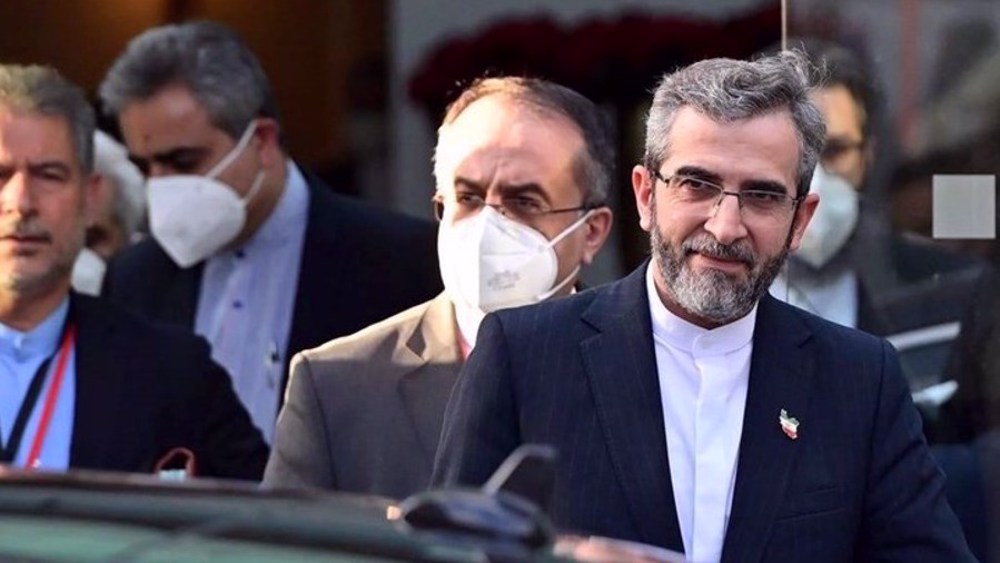
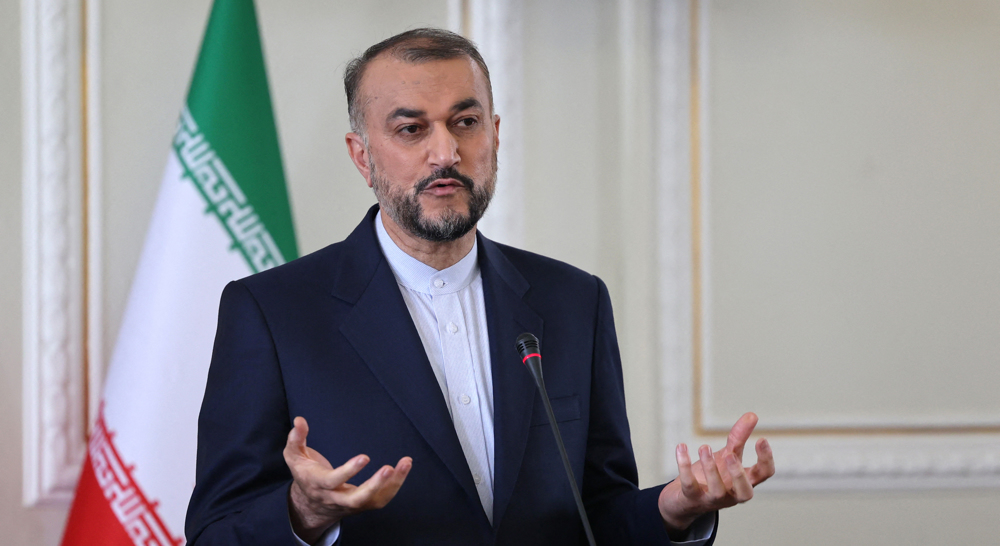
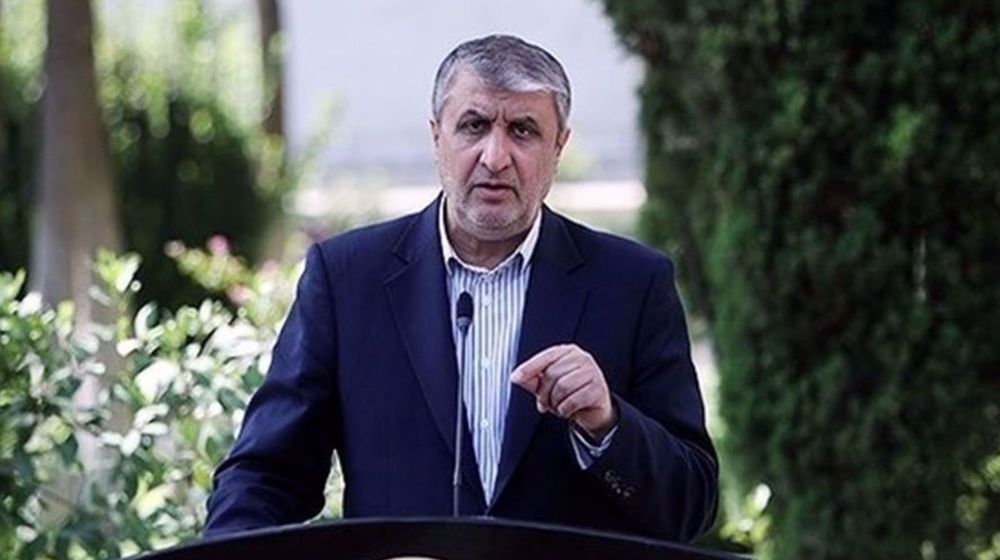
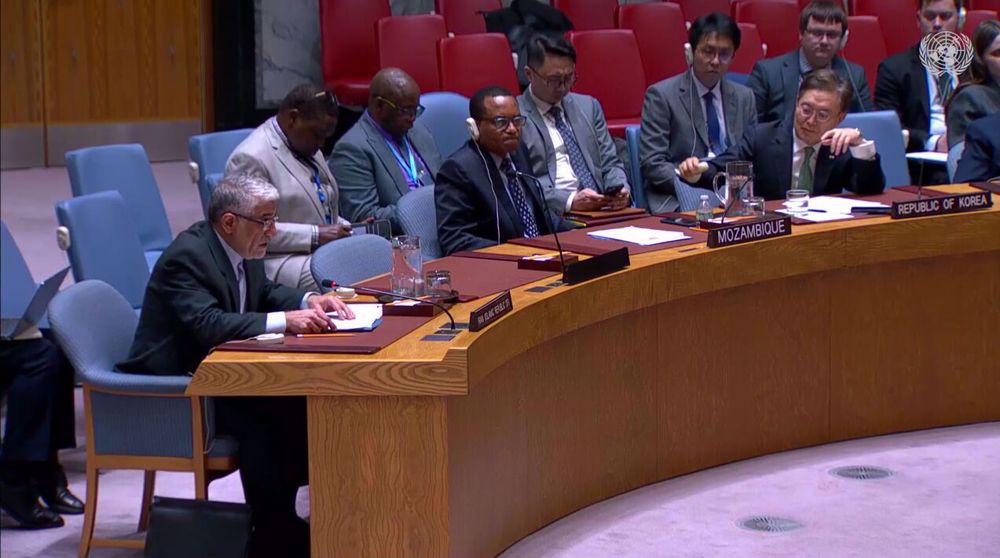
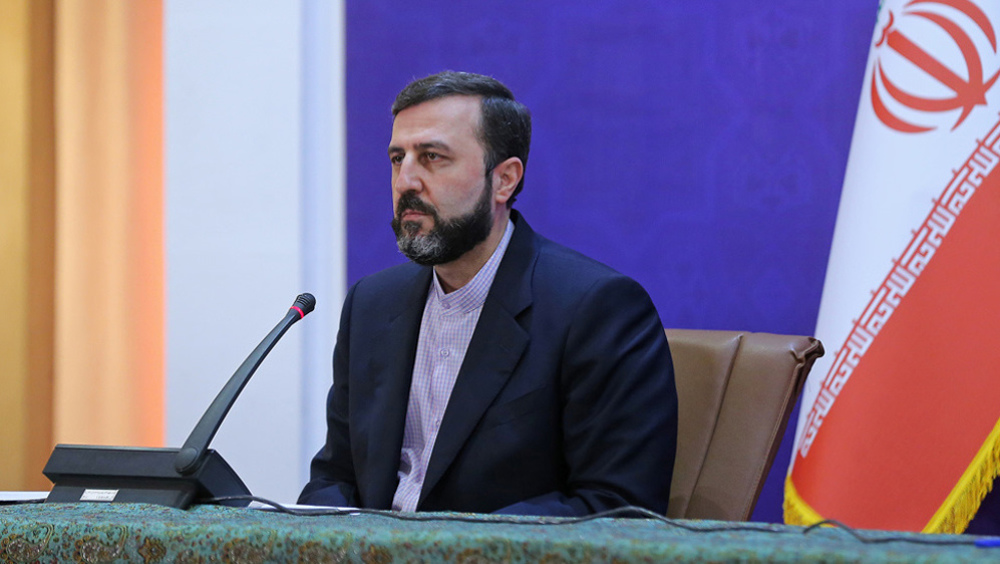




 This makes it easy to access the Press TV website
This makes it easy to access the Press TV website